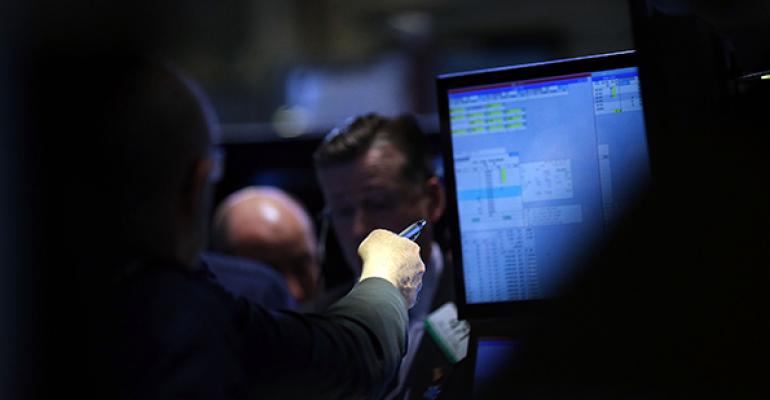(Bloomberg) -- It’s quiet out there. Maybe too quiet.
Even as U.S. stocks and bonds hit one high after another, and skeptics from Donald Trump on down warn trouble is coming, a preternatural sense of calm seems to have descended over financial markets.
The turbulence unleashed less than two months ago when Britain voted to quit the European Union has dissipated. In its place has come -- well, nothing. By some measures, markets haven’t been this serene in years.
To some, the lull suggests global investors are as confident as ever that easy money from major central banks will help underpin stocks bonds, and currencies. To others, it’s yet another sign that this bull run is reaching its limits.
“At some point, the jaws must snap,” says Charles Morris, a fund manager at Newscape Capital Advisors Ltd. in London.
On that point, few would disagree. The question on everyone’s mind, though, is when.
Right now, many investors seem to think the markets are going nowhere fast. Based on option prices, expectations for renewed volatility in stocks and bonds fell last week to their lowest levels since late 2014.
Even as the S&P 500 Index hovers near its all-time high, the CBOE Volatility Index is sitting near a two-year low. At 12.86, the VIX -- sometimes referred to as the "fear gauge" -- is 26 percent below its five-year average. A similar index that tracks U.S. Treasury note volatility has fallen 23 percent from its June peak.
Currencies are similarly becalmed. This week, a JPMorgan Chase & Co. index that tracks three-month currency volatility fell to its lowest level since late 2015.
A world economy that continues to muddle along isn’t helping. The International Monetary Fund trimmed its 2016 growth forecast to 3.1 percent last month, down from 3.2 percent in April. In the U.S., the economy expanded at a 1.2 percent annualized pace in the second quarter, better than the first three months of the year but less than half what economists had forecast.
And while profit growth is improving, S&P 500 companies are still expected to post shrinking earnings for a fifth straight quarter. That would mark the longest such streak since the equity bull market started more than six years ago.
“Complacency has developed -- the market has lulled people to sleep,” says Bill Schultz, who oversees $1.2 billion as chief investment officer of McQueen, Ball & Associates Inc. in Bethlehem, Pennsylvania.
What could rouse investors? Schultz says a sustained decline in oil, which sank into a bear market on Monday, could provide a wake-up call. Others are watching for signs that the Fed and other central banks that have held interest rates so low for so long are starting to lose their punch. Weak corporate earnings could sap confidence in stocks. And, of course, there’s a U.S. election in November to look forward to.
Axel Merk, president of Merk Investments LLC in San Francisco, says many investors are uncomfortable with the markets and are just hoping everything works out.
“My answer is, hope isn’t a strategy,” Merk says.
Big-name investors like Bill Gross and Howard Marks have warned lately that the bond markets could be in for an abrupt reversal. But that "bondageddon," as some have called it, has yet to arrive.
Indeed, some money managers say U.S. Treasury yields could fall further still. Colin Robertson, who manages $350 billion as head of fixed income at Northern Trust Asset Management in Chicago, predicts the 10-year Treasury, now 1.54 percent, will fall to 1 percent before the year is over.
“If the 10-year yield moves back toward the 1.75 percent level, I’d add, add, add,” Robertson says.
How long the market lull lasts is anyone’s guess. For the moment, many investors are betting that policy makers will do whatever it takes to sustain a Goldilocks marketplace of high stock prices and low bond yields.
“There hasn’t been enough to force people to cover their complacent views yet,” Schultz says. “But it would still be advisable for the market to be a little more cautious.”
To contact the reporters on this story: Liz Capo McCormick in New York at [email protected] ;Joseph Ciolli in New York at [email protected] ;Rebecca Spalding in New York at [email protected] To contact the editors responsible for this story: David Gillen at [email protected] ;Boris Korby at [email protected]





